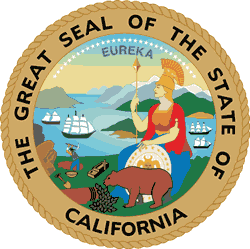PokerStars California Dreaming

PokerStars may have been refused entry into the regulated states of Nevada, New Jersey, and Delaware, but the world’s largest online poker room has now set its sites firmly on the ‘jewel in the crown’ of the US online poker market of California. However, the company still has to overcome significant challenges from both anti-online and pro gambling advocates alike if it is ever to realize its dream of re-entering the US igaming industry.
Californian market a boon for PokerStars
Although not yet regulated, Californian residents continue to play on unlicensed, offshore websites with the state’s internet poker industry estimated to be worth around $2.2 billion a year. Not surprisingly, PokerStars would consider it a real coup to gain entry into the USA’s biggest, most affluent state which has a population of 38 million residents.
A big part of PokerStars’ initial success came about after occupying the void left in the American market when the then online poker leader PartyPoker quit the country in 2006. PartyPoker later payed $105 million by way of a “non-prosecution agreement” with the DoJ to absolve itself of its UIGEA contravention, whereas PokerStars simply continued to operate in the US and gain market share, much to the grievance of authorities.
Despite being forced from the US market in 2011 and later paying $731 million to the DoJ, PokerStars has since been labelled a ‘bad actor’, thus thwarting its attempts to gain a foothold in the American states currently offering regulated online poker.
California reiterates opposition to bad actors
As The Golden State debates legislation which could see regulated online poker introduced as early as next year, a report emerged last week explaining that PokerStars was close to completing a deal with the Morongo tribe. However, keen to avoid a repeat of previous license applications which were rejected on ‘bad actor’ grounds, PokerStars has been working hard to influence future legislation and have any ‘bad actor’ clauses removed from Lou Correa’s (State Senator) SB 1366, and Reginald Jones-Sawyer (Assembly Member) AB 2291 bills.
Recently, however, the situation has changed dramatically after a group of twelve California Indian tribes banded together to oppose any attempts to omit the “bad actor” clause from any future online poker legislation. As their joint statement on iPoker Bad Actors, read:
“Although we presently have slightly differing views on a legislative framework for Intrastate Internet Poker in California, our tribal governments are united in our steadfast opposition to the easing of regulatory standards that would accommodate bad actors whose past behavior and tainted brands and assets would erode the integrity of Intrastate Internet poker under consideration.”
PokerStars’ efforts may scupper ipoker legislation
Needless to say, PokerStars attempts to rejoin the USA’s online poker industry are currently being met with fierce opposition and could even lead to online gambling expansion being put on hold altogether. In the past California’s attempts to introduce Internet poker bills have failed and this time around PokerStars’ efforts to strike a “bad actor” clause from legislation may well be enough to convince California cardrooms and tribes to once again withdraw their support for legislation.
In other words, the mere fact PokerStars may be allowed back into the US market may be enough to convince the tenuous alliance of California tribal casinos and card-rooms not to support the bill. As well as scuppering PokerStars’s longing for a US return, it would also reflect badly on the site, which could be seen as having employed a scorched earth policy in California.
PokerStars viewed as major threat amongst gaming companies
PokerStars may not be seen as an enemy by the roughly 200,000 players who gamble on the site at any one time, but rival gambling operators and authorities view PokerStars as just another illegal offshore site operating in the USA’s gray market. Keen to stop PokerStars participating in a future legislated California market, it has been accused of not acting in “the best interest of consumer choice or consumer protection,” and using “the Legislature to gain a competitive market advantage.”
PokerStars, of course, has accused those groups publicly opposing it as misrepresenting the UIGEA and the site’ past U.S. operations, and stipulated that the company “looks forward to demonstrating our suitability to the regulator just like any other company seeking to operate in California and investing in a fair and well-regulated market.”
What next for PokerStars?
Rather than fighting California’s “bad actor” clause tooth and nail, a more equitable approach by PokerStars would be to accept it has been a bad actor and so better expend its efforts trying to petition for a reduction in the probationary period for bad actors. In Nevada, for instance, bad actors are blocked from receiving a license for a decade, and so PokerStars could seek, instead, to have the time period reduced to say three years, instead.
Meanwhile, PokerStars could spend the intervening time encouraging various state to pursue online gambling, while continuing to forge long-term partnerships with local gambling interests.










